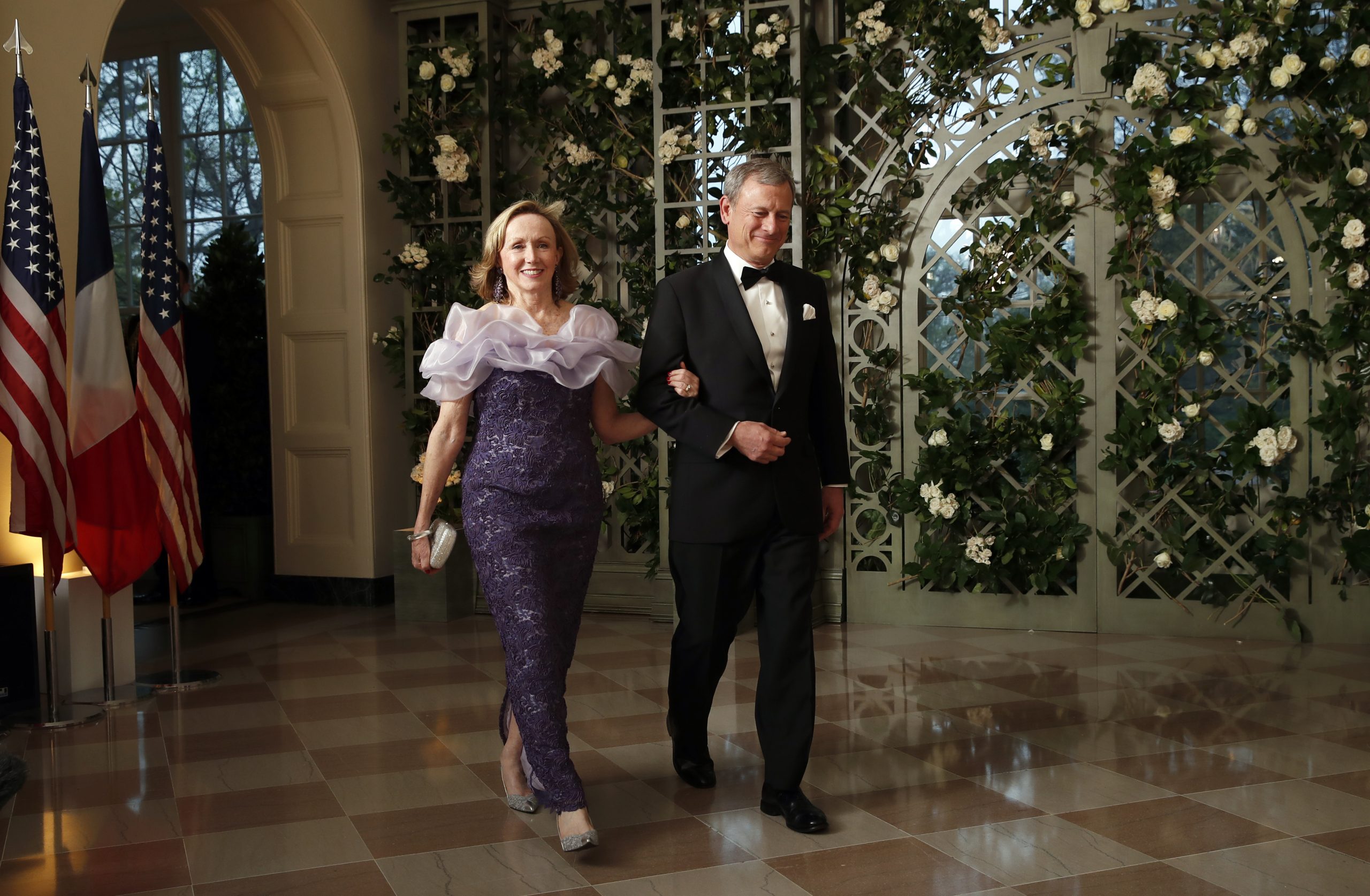Supreme Court ethical standards are facing a new round of scrutiny after a former colleague of Chief Justice John Roberts‘s spouse alleged a potential conflict of interest due to her paid work of recruiting lawyers at top firms.
That colleague of Jane Sullivan Roberts, Boston-based attorney Kendal Price, recently sent a letter to Congress and the Department of Justice, demanding for the nine-member bench to be required to disclose more information relating to their spouses’ work. The letter comes at a time when many Democratic lawmakers and liberal groups are calling for specific ethics changes at the high court even though Republican control of the House could make that task more difficult.
In the letter, Price provided records that Jane Roberts had been paid millions of dollars in commissions for placing lawyers at firms, some of which had business before the Supreme Court.
The New York Times reported on Price’s letter, leading to a wave of attention and a response from the Supreme Court’s spokeswoman, Patricia McCabe, who said all nine justices were “attentive to ethical constraints” and complied with financial disclosure laws.
SUPREME COURT CHIEF JUSTICE JOHN ROBERTS’S WIFE COULD FACE ETHICS INQUIRY

But since the Jan. 31 New York Times publication, several law professors and court watchers have pointed out that Jane Roberts’s work hardly poses ethics concerns or, at the very least, the court could have done better to disclose her financial gains publicly through her recruitment activities.
“We don’t want to impugn Jane Roberts for doing her job,” Gabe Roth, founder of Fix the Court, an advocacy group that seeks reforms in the federal judiciary, told the Washington Examiner, adding that “judicial spouses should of course have whatever jobs they want. But the public should have more information as to whether those jobs might pose a conflict to their wives’ or husbands’ judicial work.”
In response to the New York Times report, Sen. Dick Durbin (D-IL), chairman of the Judiciary Committee, didn’t address how the committee would respond to Price but released a statement saying his letter brought up “troubling issues that once again demonstrate the need” for ethics reforms to “begin the process of restoring faith in the Supreme Court.”
Last April, Congress passed a financial disclosure law to address concerns surrounding federal judges who do not recuse from cases in which they might have a financial interest. Current rules request justices to disclose some information about their spouses’ career work but not details about their clients or any details about compensation.
Sen. Sheldon Whitehouse (D-RI), a longtime member of the Judiciary Committee who has often highlighted ethics dilemmas facing the high court, said last month he believes there’s a strong chance lawmakers can pass a new ethics bill this Congress.
“The more we’re talking about it, the more it becomes clear that the justices have painted themselves into a completely untenable position. And they’re gonna have to do something to fix it,” Whitehouse said.
Whitehouse’s optimism was given some credence by Sen. Lindsey Graham (R-SC), a ranking Judiciary Committee member who said he could “possibly” support ethics legislation on the high court.
Responding to an inquiry about the Price letter, the high court’s spokeswoman at the public information office said the chief justice and his wife consulted the code of conduct for federal judges and an advisory opinion from 2009. The opinion said a judge “need not recuse merely because” their spouse had worked as a recruiter for a law firm with issues before the court.
But while lawmakers and court watchers share a general concern about holding the justices to account and ensuring transparency, some law professors were hesitant to call Jane Roberts’s recruitment work a reason for why the rules should be changed.
Noah Feldman, a Felix Frankfurter professor of law at Harvard Law School, wrote an extensive op-ed about Price’s letter and likened the reports on the Roberts family to “the wrong fight for liberals to pick.”
“Consider that the justices all went to law school and worked in legal environments. It should come as no surprise that several are married to lawyers. Those lawyers will naturally want to work in their chosen fields. They should not have to quit because their spouses ascend to the bench,” Feldman wrote.
For other court watchers, the activities of Jane Roberts didn’t seem far different from underreported ethical questions surrounding the late Justice Ruth Bader Ginsburg and her husband, Martin Ginsburg, who founded the Washington, D.C., tax practice for the law firm of Fried, Frank, Harris, Shriver & Jacobson.
“In all the years Justice Ginsburg was alive, or when her husband was alive, no one uttered a peep about her sitting on tax cases, about cases in which his clients might have had an interest because they could have been affected by tax rulings,” Jonathan Adler, a professor at Case Western Reserve University Law School, told the Washington Examiner.
“And I should be clear, I don’t think Justice Ginsburg did anything wrong,” Adler said, noting that he believes efforts to elevate concerns in Price’s letter are broader efforts to “delegitimize” the court and “not a serious ethics issue” for the chief justice.
CLICK HERE TO READ MORE FROM THE WASHINGTON EXAMINER
“While there are issues that may arise or that have arisen that might raise ethical concerns and might justify greater attention to disclosure … this isn’t it,” Adler added.
It’s unclear at this time whether the DOJ will follow up with Price’s letter. The Washington Examiner contacted the department for response.
